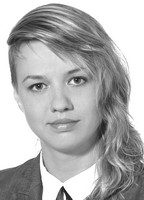Model of formation of sports culture of 11-13-year-old karatekas
Фотографии:
ˑ:
Model of formation of sports culture of 11-13-year-old karatekas
E.O. Rybakova, Candidate, T.N. Shutova, Associate professor, Ph.D., Chaykovsky state institute of physical culture, Chaykovsky
Key words: sports culture, its components and pedagogical conditions of formation, kyokushinai karate.
The purpose of the present research was to develop the model of formation of sports culture of 1-13 year-old karatekas.
The research methods included analysis of literature sources, pedagogical observation, pedagogical experiment, functional diagnostics, sociological methods, pedagogical test, anthropometric measurements, methods of mathematical-statistical processing of empiric data. The pedagogical experiment was realized in Chaykovsky of the Perm region since 2009 till 2011 with 50 schoolchildren of the experimental groups. The model of formation of sports culture of karatekas represents realization of conceptual components of sports culture, pedagogical conditions and means of training of junior karatekas.
In the worked model information component is represented by knowledge of the history of formation of karate kyokushinai; knowledge of sports training; mastering of terminology of sport and methods of self-control. Teenagers are to know the names of technical means and stands in karate; basic greetings, dojo ritual, counting to 10 (on the language of the founder of karate), combat orders, orders in sparring; basic regulations of rules in kumite and kata competitions. Formation of the informative component of sports culture is realized by means of theoretical training in the beginning of every training class, cooperation with parents, as well as development of the differentiated educational route. The educational route individualizes and allocates short-term and perspective features of the training process of junior karatekas, effects as a method of increase of motivation to classes, improves the contents of training cycles of junior athletes.
Bibliography
1. Barinov, S.Yu. Conceptual statements of the theory of formation of personal sports culture / S.Yu. Barinov// Teoriya i praktika fizicheskoy kultury. –2011. – № 1. – P. 48–52.
2. Bel'z, V.E. The effect of karate classes on teenagers' socialization / V.E. Bel'z, Yu.T. Revyakin // Fizicheskaya kultura: vospitanie, obrazovanie, trenirovka. – 2007. – № 5. – P. 37–38.
3. Kondrat'ev, A.N. Traditional karate as a component of Russian sports culture / A.N. Kondrat'ev// Fizicheskaya kultura: vospitanie, obrazovanie, trenirovka. – 2007. – № 6. – P. 47–48.
4. Lubysheva, L.I. The phenomenon of sports culture in aspect of methodological analysis / L.I. Lubysheva// Teoriya i praktika fizicheskoy kultury. – 2009. – № 3. – P. 10–14.
5. Romanovich, V.A. Effectiveness of innovative contents of sports education at senior school / V.A. Romanovich// Fizicheskaya kultura: vospitanie, obrazovanie, trenirovka. – 2010. – № 5. – P. 8–11.



 Журнал "THEORY AND PRACTICE
Журнал "THEORY AND PRACTICE